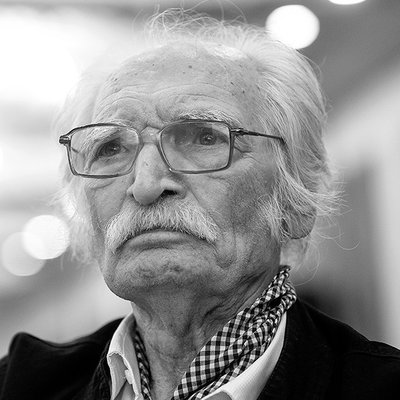
Last Update
Dec. 31, 2020
Organisation
Unknown
Gender
Male
Ethnic Group
Persian
Religoius Group
Shia
Province
Tehran
Occupation
Artist
Sentence
2 years imprisonment
Status
Released
Institution investigating
Unknown
Charges
Unknown
Mahmoud Dowlatabadi Released
Mahmoud Dowlatabadi is a prominent Iranian writer and novelist. As a writer, he faced both imprisonment and attempts to sabotage and undermine his literary work, often facing difficulty getting his works published.
Some of Dowlatabadi’s books have been translated and published in a number of different languages. One of his most famous works is the 10-volume novel Kelidar. The majority of Dowlatabadi's stories take place in the rural villages in the province of Khorasan and depict the suffering and difficulties faced by villagers in eastern Iran.
Dowlatabadi has also written several plays and screenplays and has worked as a film and theater actor under prestigious directors such as Abbas Javanmard, Bahram Beizai and Dariush Mehrjoui.
Many of Dowlatabadi's works have been adapted into films and screenplays.
In 2013, Dowlatabadi was awarded the Jan Michalski Prize for Literature in Switzerland and in 2014, he was awarded the French Légion d'honneur in the Ordre des Arts et des Lettres for literature by the French Ambassador to Tehran.
In March 1975, Mahmoud Dowlatabadi was arrested by SAVAK agents, the Pahlavi Shah’s secret police and intelligence service, shortly after he had begun writing his novel Kelidar.
In an interview with the Iran Book News Agency, Dowlatabadi retold the story of his arrest and spoke about the reasons for it, saying: “When I asked the SAVAK agents why they had arrested me, they said: ‘We found books that you had written in the homes of everyone whom we arrested.’ Eventually, they told me: ‘When we arrest people and bring them in, all of them say Dowlatabadi is right and his books are [allowed to be published] in the markets. But you are imprisoning us for reading these books and having the same beliefs.’ I replied: ‘You allowed it; your Ministry of Culture and Art granted a publishing license for my works. What should I do? Tell them to collect up all my books and stop selling them?’ But they didn’t say anything. I think they kept me in prison so that they could show me what it [prison] was like and to show what they do to the nation’s youth! That was just what I believed and once they were convinced that I didn’t have any links to any particular political movements and once they were sure that I was simply a writer, they softened and eventually, after two years imprisonment, I was released.”
At the time of his arrest, Dowlatabadi was working on Kelidar and another novel, Payanehha / The Lowly, about a laborer.
Dowlatabadi spoke about the novel, saying “This novel was about the lower stratas of society, and it was, honestly, a fascinating story. It was about the laborers and impoverished people but I can’t remember anything specific about it now. It might still be in one or two of my notebooks but I remember it being about work and life in the lower classes. Perhaps, at the time, some of the [SAVAK] agents found drafts of Payanehha, read parts of it that had been left in the house, and perhaps it was because of that I was imprisoned for an extra year. In the initial trial, the judge only sentenced me to one year imprisonment, but in the Court of Appeals, I was sentenced to another year in prison.”
During his imprisonment, Dowlatabadi was detained in a number of the SAVAK detention centers including Qasr Prison and Evin Prison. He was released from Evin Prison after two years of detention in March 1977.
After the Islamic Revolution in 1979, Dowlatabadi became a supporter of the reformist faction in Iranian politics. During the controversial 2009 presidential election, he supported Mir-Hossein Mousavi, one of the leading candidates in the election, who claimed the vote count was manipulated to give his rival Mahmoud Ahmadinejad the presidency.
Another of Mahmoud Dowlatabadi’s prominent literary works is The Colonel which was written in the early 1980s, but only later published in German by a Swiss publisher in 2009. The Colonel is the story of a patriotic military officer in the Pahlavi Shah’s Imperial Army whose life and the life of his family are strained by the Islamic Revolution in 1979. The story reflects on the efforts of the Iranian people to achieve a modern and developed society.
In 2008, Cheshmeh Publishing applied for a publishing license to allow them to publish The Colonel, but the officials in the Ministry of Culture and Islamic Guidance refused to grant the license.
In February 2014, some news outlets announced that Iranian publishing companies had been granted a license to publish the novel. However, Hassan Rouhani’s Ministry of Culture and Islamic Guidance denied that it had granted a license for The Colonel, stating that: “Currently, no publishing license has been issued for this book by the General Directorate of Books and Reading Development."